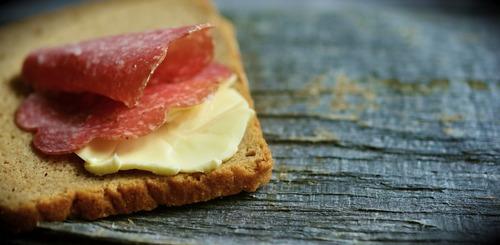For decades the meat industry has been working with the same process of meat fermentation to preserve products like salami, saveloy and filet americain. Fermentation is one of the oldest methods to preserve food by using bacteria, fungi and yeasts. This preservation process is not always optimal, which in addition to a less tasty product can also lead to microbial risks.
A multidisciplinary consortium including a number of pioneers in meat fermentation, the German companies Meat Cracks Technologie and direct starterculturen, IP & D (drying processes), Wageningen University and Microbial Analysis looked into various ways to improve this fermentation process.
Microbial Analysis develops a new test for sausage fermentation
For the fermentation of sausage, bacteria that produce lactic acid are used. Quick acidification through lactic acid benefits the taste and prevents unwanted contamination. The application of Next Generation Sequencing (NGS) provides us with greater insight in the fermentation process. We have used this RNA NGS project to screen bacteria on genetic expressions for quick production of lactic acid, relevant to this fermentation process. By using these analyses we can track the function of these bacteria during the whole fermentation process. By varying conditions, we have discovered which parameters are most relevant for optimal bacterial growth and quick production of lactic acid.
Research
To achieve a good result a step-by-step plan was set up including a literature study and several tests on lab scale and on semi-industrial scale. Microbial Analysis has developed a test plan and has carried out part of the software development to interpret the NGS results properly. Subsequently, we (Microbial analysis) have performed NGS analyses. The data of the analyses have given us greater insight in the fermentation process. Based on these results, we have established an improved protocol. After re-measuring the process by applying the new protocol, we also discovered what was causing the problems in the original fermentation process.
Results
Thanks to the test results, direct starterculturen GmbH are now able to produce well-functioning cultures. Until now this seemed impossible. The knowledge of the WUR in the area of metabolism of lactic acid bacteria has proven to be very valuable. The input of IP&D was also of added value.
In the meantime, Meat Cracks Technologie GmbH and direct starterculturen GmbH have decided to start a new and independent spin-off company in Mühlen that is going to produce cultures according to the new protocol.
Due to the fact that within these processes measurements are carried out at different times, a standardised method is crucial. Microbial Analysis sees great potential in the further development of the software for the processing of NGS data and the development of process specific and quantitative (qPCR) analyzes from NGS data in order to be able to monitor industrial processes quickly and accurately.
This project was carried out within the framework of the Dutch-German project INTERREG V A program FOOD2020.


Would you like to know how our testing methods could benefit your production process?
Please contact Elsemiek Croese,
croese@microbialanalysis.com